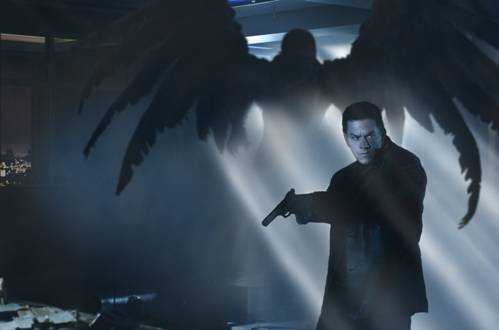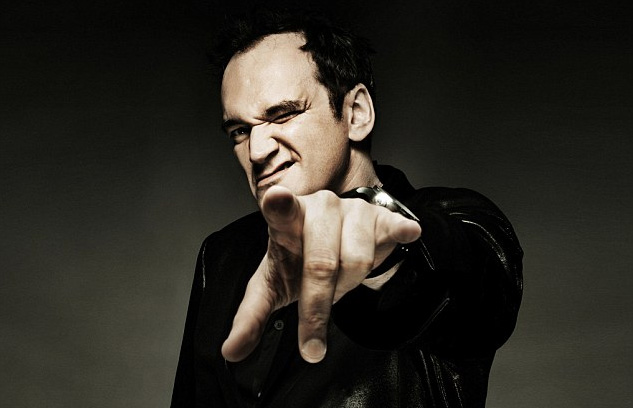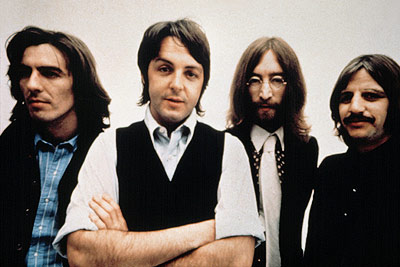Heath Ledger as The Joker
From the moment it appeared on screen, a tantalizing amount of contemplation and anticipation began to mount. It was simply a card but yet it was a statement that resonated deep within millions of avid fans. In most card decks, this is the card that is usually omitted from play, of course, unless it is meant to be wild.
Heath Ledger vs. Jack Nicholson
Batman Begins (2005) ended with an insurmountable bang that shook the foundation of mythic comic book films. When Lieutenant Gordon reveals to Batman the presence of a new and dangerous entity named simply as The Joker, audiences around the world let out a collective gasp of excitement while maintaining a simultaneous sense of uncertainty. You see, many people have grown up with Tim Burton’s 1989 classic Batman, and to them the presence of Jack Nicholson’s Joker is the epitome of what the character is and shall ever be remembered as. So, after the card is revealed during the closing minutes of Batman Begins, one’s initial hesitation to jump for joy was clearly an understood reaction. Nicholson had done such a tremendous job with the character that, in a sense, it would seem blasphemous to ever want to try and confront it again.
When it was announced that Heath Ledger was to take on the role made famous by Nicholson, many eye brows must have ascended in height. The rumored idea that Sean Penn may portray him or even Nicholson himself returning to the role seemed more of an obvious choice then the participation of Heath Ledger. This writer’s first thought was of the Australian’s performance in the 1999 film 10 Things I Hate About You, and how he seemed too innocent and sincere to ever take on a role as challenging and multi-layered as the enigmatic Joker.
However, after initial trailers began to pop up during the end of 2007, this writer knew that the filmmakers had chosen the right thespian for the job. His performance was going to be nothing like the (slightly) campy, over the top buy yet highly entertaining Joker inBurton’s comic book contained Batman. Instead, The Joker seemed to be an unrelenting, manipulative psychopath with no compassion for understanding the simple needs of others. Whereas Burton’s and Joel Schumacher’s Batman films eventually became camp parodies of themselves, Christopher Nolan (the director of Batman Begins and The Dark Knight) took the character of Batman and gave him true origins and meaning. The film was serious in tone, and realism seemed to be a viable commodity sought by the director. In the end, it worked and thus rejuvenated the stale Batman franchise.
Creating a New Joker
The Dark Knight goes to even further lengths to express a sense of realism. Yes it is a comic book film, but yet it strives to rid itself of its comic book origins in order to convey an understanding that this could happen anywhere in present day society. Thus, in order to maintain a sense of realism, the characters have to appear authentic. Batman is an alter ego to the highly conflicted Bruce Wayne because he finds solace in the form of a creature that frightened him as a child. His motives and intentions are genuine and sincere which thus allows him to be understood as a real human being.
So, there was definitely a challenge for Heath Ledger in taking on this role. He had to be able to embody the over-the-top antics of this troubled individual, but yet make his actions seem sensible enough to seem plausible to discerning audiences. Ledger knew that Nicholson had basically made The Joker his own in 1989, so the character had to become something completely different.
Heath Ledger’s Performance
To sum it up, Ledger does overcome this seemingly insurmountable challenge by truly making the character his own. There is no comparison between his Joker and Nicholson’s. Nicholson’s was memorable but one never felt a true sense of fear when he appeared on screen. When Ledger is on screen, he is magnetic. He steals the film. He is unpredictable but yet compelling. He is amusing but yet frightening. There is such a tremendous amount of diversity conveyed through his acting talent that the character of The Joker can be read in many alternate ways. He is so fully dimensional that to try and define him one way would be a mistake. He is who he is and, as a result, it becomes one of the most memorable screen performances of all time.
It is not simply the way the dialogue is delivered, either. To truly gain a sense of Ledger’s acting capabilities is to watch his mannerisms. The darting, unfocused eyes, the constant licking of the lips, the hypnotic but yet eerie bellow of laughter that resonates from his soul. His tangled and greasy hair defines him as a man unconcerned with appearance, but rather as an individual obsessed with undermining the social structure of balance and superficiality. He is unashamed with who he is because he refuses to allow codes and rules to define him as a human being. He lives to disrupt meaning and to create tension within a structurally obsessed culture.
The Joker has always been one of the most reviled and yet admired characters in fiction. In a sense, The Joker is a contradiction. He finds humor and laughter in the face of death and suffering. He is psychotic but yet Ledger never allows him to simply become read as a one-note psychopath. To create such psychological depths within the mind of a vile entity such as The Joker is a testament to the acting talent of Heath Ledger. Ledger’s performance is larger then life and, as a result, becomes the most memorable interpretation ever of this tragic and sadistic clown.








